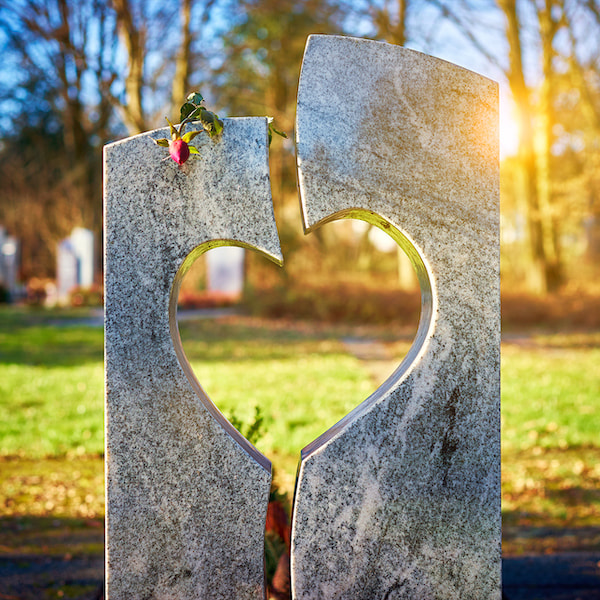Talking about death is not an easy conversation. I get it. It brings up all sorts of emotions and challenging questions. That is why many people put off estate planning or put it in the ‘too hard’ basket.
It is important to have an understanding of what will happen, however, if you die without making a valid will, which is known as dying ‘intestate’. It can mean your assets won’t be allocated in the way you would have liked.
Who will be responsible for distributing my estate?
If you die intestate, the person who seeks to be appointed responsible for your estate needs to make an application to the Supreme Court of NSW for ‘Letters of Administration’; this is a document providing the court’s formal approval for someone to administer your estate (net assets, including real estate and personal items).
The Court generally grants administration of an intestate estate to the person or people with the greatest entitlement in the estate (this may be a spouse or children) or to NSW Trustee & Guardian.
How will my estate be divided?
The law sets out how your estate will be shared. In NSW, this is determined by the Succession Act 2006. The distribution will depend on your circumstances at the date of your death, as set out below.
1. Single with no children
If you don’t have a spouse, your relatives will inherit your estate. Each ‘relative category’ set out below must be exhausted before moving on to the next and once an eligible relative category is found, the process stops.
In the first instance, your parents will inherit your estate, in equal shares.
If your parents pre-decease you, then your estate will be divided equally between your siblings, and if any of your siblings pre-decease you, then the share they would have inherited passes on to their children (your nieces and nephews). If any sibling of yours and child of theirs has died, then their share passes to that niece or nephew’s children (your great nieces and/or nephews) – and so on.
If you don’t have any siblings, then your estate will pass to your living grandparents, in equal shares.
If you don’t have any living grandparents, then your estate will pass to your uncles and aunties, in equal shares.
If you don’t have any living uncles and aunties, then your estate will pass to your first cousins, in equal shares.
Finally, if there are no eligible relatives as set out above, your estate will pass to the NSW Government.
2. Single with children
Your children will receive equal shares of your estate. If any child of yours has died and left behind children of their own (your grandchild), your grandchildren will inherit their parent’s share. If any child and grandchild of yours has died, any living great grandchild will inherit – and so on.
If your children pre-decease you and there are no grandchildren or great grandchildren etc to inherit your estate, then the other ‘relative categories’ set out in point (1) above will apply to determine how your estate is distributed.
3. Married with no children
Your spouse is entitled to the whole of your estate.
4. Married with children
Your spouse is entitled to the whole of your estate, unless you have children from a previous relationship.
If you are married and have children from a previous relationship, your spouse is entitled to:
(a) all of your personal effects;
(b) a statutory legacy (being approximately $485,000 as at 2021); and
(c) half of whatever is left of the estate.
The remaining half of your estate will be shared equally between your surviving children.
If the value of your estate does not cover the statutory legacy referred to in point (b), then your spouse will be entitled to your entire estate. The statutory legacy figure is adjusted regularly to the current Consumer Price Index.
5. De facto relationship
Under the Succession Act 2006, ‘spouse’ does not only mean by marriage; it also means a person you were in domestic partnership with immediately before you died. A ‘domestic partnership’ is a de facto relationship or a relationship between you and another person that is a registered relationship, or interstate registered relationship, within the meaning of the Relationships Register Act 2010, that:
(a) has been in existence for a continuous period of 2 years, or
(b) has resulted in the birth of a child.
The Relationship Register Act allows adults who are in a relationship as a couple, regardless of sex, to register their relationship, provided at least one of them lives in NSW.
Given the inclusive meaning of ‘spouse’ under the Succession Act 2006, your estate will be distributed in the same way as set out in section (3) or (4) above, as applicable to you.
Why should I make a will?
A national study* by the NSW Trustee and Guardian found that whilst 98% of Australian’s surveyed thought it was important to have a valid will, enduring power of attorney and enduring guardian, their behaviour does not follow their intent. The study found an astounding 45% of people surveyed have never given any serious thought to what will happen if they die or become incapacitated.
Why is this important, you might ask?
Wills are a roadmap for loved ones. In what will no doubt be an emotional time, a will gives them clarity and guidance on what your wishes are, and this does not only mean your wishes in relation to your estate. Whilst allocating your assets is certainly a central focus when preparing your will, it is also the document in which you can nominate guardians of your young children, nominate who takes possession of treasured sentimental items, specify preferred funeral arrangements and whether you wish for your organs to be donated (if you do, you should also register your wishes with the Australian Organ Donor Register, operated by the Organ and Tissue Authority and Services Australia through Medicare).
Having a valid will in place can also help your loved ones to avoid long-winded, expensive legal battles over the division of your estate. It is understandable to think that won’t happen within your family, but the unfortunate reality is that it happens frequently.
Whilst the law will determine how to distribute your estate if you die without a will, it is certainly preferable to have one. Having the difficult conversations now, with family and a solicitor to help guide you through the relevant issues and help manage the emotion, may help your family avoid even more difficult conversations and questions down the track.
If you would like to discuss your existing will or prepare a new will, I’d be honoured to have that important conversation with you. You can reach out to me by email or phone.
Footnote:
*’Are Australians Planning for Later Life?’ Study of 1016 Australians aged 18 years or older. Lonergan Research, September 2013.



